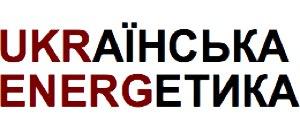Civil Society Letter on Ukrainian Debt to the Directors of the World Bank and the International Finance Corporation
DiXi Group think tank in the framework of the project ” Support to the decarbonization of Ukraine’s economy through the development of new financing models through the use of debt” joined the appeal to The World Bank for help.
“The World Bank has acknowledged that there will be a huge economic toll of the war, as a large share of Ukraine’s infrastructure is destroyed and business activity is disrupted. The significant spillover effects to other countries are already felt and will intensify. When the sanctions against Russia and Belarus are added, the economic shocks of the war are reaching far globally.
On March 7th the World Bank has announced the supplemental budget support package for Ukraine, called Financing of Recovery from Economic Emergency in Ukraine – or FREE Ukraine – for $489 million. The package approved by the Board consists of a supplemental loan for $350 million and guarantees in the amount of $139 million. It is also mobilizing grant financing of $134 million and parallel financing of $100 million, resulting in total mobilized support of $723 million.
This support from the World Bank, while appreciated, needs to be expanded. The World Bank and its private sector lending arm, the IFC, can and should do more.
As an immediate measure, the WB and the IFC need to devote financing for debt forbearance and restructuring with its Ukrainian partners. Since 2014, when the country has already lost part of its territory in Crimea and has been fighting in the conflict in Donbas, the Ukrainian government has repaid the World Bank approximately US$3.32bn, including interest and fees.
Currently these resources are much needed for war efforts and humanitarian aid. Therefore, the further repayments should be managed within the carefully designed debt relief scheme, instead of rolling over the debt only to accumulate more of it for the future.
We suggest that debt management exercises are analyzed based on the following criteria:
(1) impact on the timing and access to new financing, especially IFI financing during war;
(2) impact on the cumulative amount of financing that Ukraine will be able to receive during and after the war, say over the next 5 years in the first instance,
(3) impact on the costs of any new debt and future dynamics of public debt stock
We strongly believe the debt relief and further support options for Ukrainian sovereign from the World Bank should be based on the following principles:
1) Provide grants instead of loans to avoid the accumulation of a debt burden;
2) Existing debt cancellation, that should be designed in a way that it does not cause cross-
default on Ukraine’s other debt, including Eurobonds, or damage Ukraine’s reputation as a reliable borrower;
3) The amount of unconditional budget support should be increased substantially from the current levels;
4) The new debt should be in significant share denominated in Ukrainian currency to avoid FX risks for Ukraine in the immediate post-war future.
As a next measure, the World Bank should classify Ukraine as the country ‘in conflict’ and provide
access to more flexible financing and concessional lending, and eligibility for debt waivers as an
International Development Association (IDA) country. Meanwhile, the World Bank has not yet
classified Ukraine as ‘fragile and conflict-affected situation’ (FCS), in order to access options for
debt relief…”




